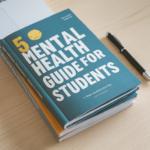Moving to a new country as a MSc student moving to the UK for higher studies is a life-changing experience, especially for MSc students relocating to the UK. With its world-class universities, diverse culture, and exciting opportunities, the UK promises both challenges and rewards. This guide will walk you through the essential steps to settle in comfortably and thrive in your new environment. If you are already in UK for your postgraduate program, or about moving to UK, then this article is for you.
This article will serve as a guide, so I advise that you take your time to go through every step of this article. Let us get started.
Things to do as a MSc student moving to the UK
I will put everything into 3 categories:
- Before You Arrive in the UK
- Upon arrival
- Adjusting to Life in UK
Before you arrive in the UK
1. Research Your Destination
Start by learning about your city and university. Familiarize yourself with the cost of living, local culture, transportation, and climate. Knowing what to expect will help you prepare better.
2. Arrange Accommodation
Secure your housing before arrival. Options include:
- University Accommodation: Convenient and often located near the campus. These are also cheap choice for you to jump on.
- Private Rentals: Offers more flexibility but may require a guarantor.
3. Gather Necessary Documents
Keep the following documents handy:
- Passport with a valid student visa
- University acceptance letter
- Proof of accommodation
- Academic transcripts and certificates
- Financial documents
Things to Do Upon Arrival
1. Complete University Registration
Register at your university to get your student ID, access campus facilities, and attend orientation events.
2. Open a UK Bank Account
A local bank account is essential for managing finances. Popular banks include Barclays, HSBC, Lloyds, and Santander. Required documents:
- Passport and BRP
- Proof of address (tenancy agreement or utility bill)
- University enrolment letter
3. Collect Your Biometric Residence Permit (BRP)
If your visa requires a BRP, collect it within 10 days of arrival. The letter accompanying your visa will provide details about the collection point. As
4. Register with a GP (General Practitioner)
Healthcare is free under the NHS for students who have paid the Immigration Health Surcharge. Register with a local GP to access medical services.
5. Get a Local SIM Card
Choose a reliable mobile network like EE, Vodafone, O2, or Three. Many offer student-friendly plans with data bundles.
6. Apply for a National Insurance Number (NIN)
If you plan to work part-time, you need a National Insurance Number. Apply online or by phone, and provide proof of your right to work in the UK.
Adjusting to Life in the UK
1. Understand Public Transportation
The UK has excellent public transportation options:
- Trains: Use a 16-25 Railcard for discounted fares.
- Buses: Learn about local bus routes and passes.
- London Transport: If you’re in London, get an Oyster card for cost-effective travel.
Download Trainline or Trainpal App from Playstore or App Store to get started with book trains or even getting a Railcard.
Balancing Work and Studies
1. Know Your Work Rights
As an MSc student, you can work up to 20 hours per week during term time and full-time during breaks. However, ensure your job doesn’t interfere with your studies.
2. Find Part-Time Work
Explore opportunities such as:
- On-campus jobs (library assistant, student ambassador)
- Retail and hospitality roles
Websites like Indeed, StudentJob, and your university’s job portal can be helpful.
You can also use these apps to make passive income for yourself.
Maximizing Your Academic Experience
1. Know Your Course Structure
Understand your program’s requirements, including modules, assessments, and dissertation deadlines. Use tools like Google Calendar to track important dates.
2. Utilize Campus Resources
Take advantage of:
- Libraries and study spaces
- Career counseling services
- Workshops on academic writing and research skills
3. Build Relationships with Professors
Engage with your professors and academic advisors. Their guidance can help you excel academically and professionally.
Health and Well-Being
1. Stay Active
Join a gym or participate in sports clubs. Many universities have affordable fitness centers.
2. Take Care of Mental Health
Moving to a new country can be stressful. Access mental health support through your university or NHS services. Apps like Headspace and Calm can also help.



Pingback: 5 Mental Health Guide for Students (Masters and PhD Students) - Openinglog